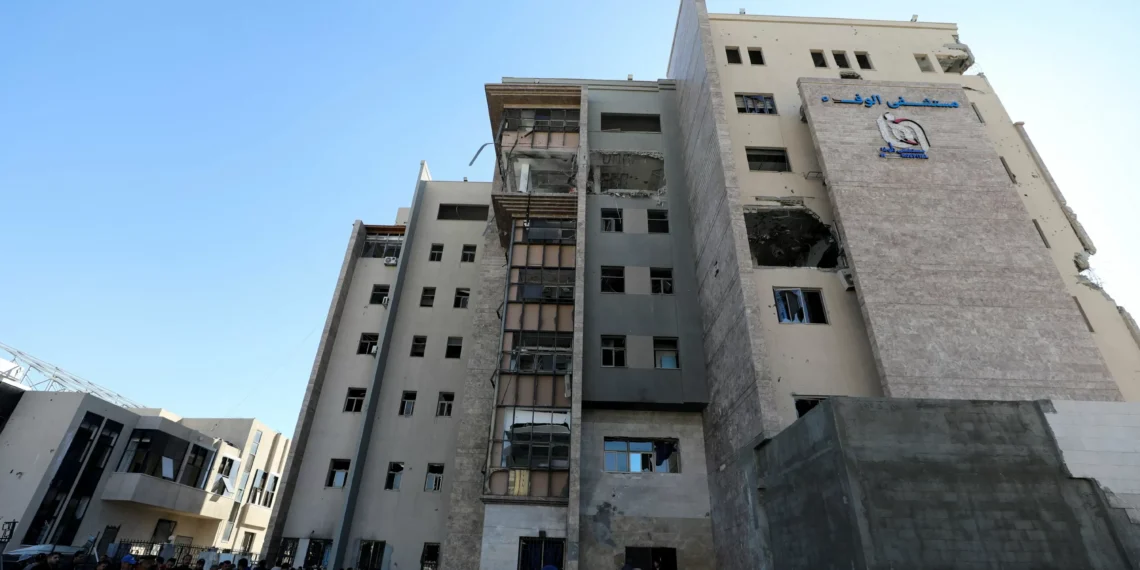Rebuilding Gaza’s Shattered Health System: A Global Call for Action
Gaza, a small strip of land on the coast of the Mediterranean Sea, has been embroiled in a devastating conflict for decades. The recent 11-day bombardment has once again brought the region to the forefront of international attention. As the dust settles and the people of Gaza try to pick up the pieces of their lives, the reality on the ground is grim. The health system, already fragile and overburdened, has been shattered by the recent conflict, leaving thousands in urgent need of medical assistance. In response to this crisis, the World Health Organization (WHO) has conducted an initial assessment and estimated that at least $10 billion will be required over the next five to seven years to rebuild Gaza’s health system.
The conflict in Gaza has taken a heavy toll on the health of its people. The recent escalation of violence has resulted in over 250 deaths and thousands of injuries, overwhelming an already fragile health system. Hospitals and clinics have been damaged, medical supplies are running low, and healthcare workers are struggling to provide adequate care to those in need. This dire situation is compounded by the ongoing COVID-19 pandemic, which has further strained an already overburdened health system.
In light of this humanitarian crisis, the WHO, along with other international organizations, has conducted an initial assessment to determine the scale of the damage and the resources needed to rebuild Gaza’s health system. The assessment has revealed that the damage is extensive, and the rebuilding process will require significant financial support.
According to the WHO, the estimated cost of rebuilding Gaza’s health system is at least $10 billion over the next five to seven years. This includes the reconstruction of damaged hospitals and clinics, restocking of medical supplies, and training and recruitment of healthcare workers. This is a daunting figure, but it is a necessary investment to ensure that the people of Gaza have access to quality healthcare services.
The health system in Gaza was already in a precarious state before the recent conflict. The blockade, imposed in 2007, has severely restricted the movement of people and goods in and out of Gaza, hindering the delivery of essential medical supplies and equipment. This has resulted in chronic shortages of medicines and medical equipment, making it challenging to provide adequate healthcare to the population. The blockade has also limited the training and development opportunities for healthcare workers, leaving the health system understaffed and under-resourced.
The recent conflict has worsened the situation significantly, pushing Gaza’s health system to the brink of collapse. The systematic destruction of hospitals, clinics, and medical facilities has not only deprived the people of Gaza of essential healthcare services but has also created a severe shortage of medical equipment and supplies. The WHO has reported that 22 health facilities have been damaged, including hospitals, clinics, and a key laboratory for COVID-19 testing. This has disrupted vital medical services, including vaccination programs, maternal and child health services, and treatment for chronic diseases.
The estimated cost of rebuilding Gaza’s health system may seem daunting, but it is not an insurmountable challenge. The international community must come together to support Gaza’s health system and provide the necessary resources to rebuild and strengthen it. This is not only a moral imperative but also a strategic investment in the health and well-being of the people of Gaza and the region as a whole.
The humanitarian crisis in Gaza requires a comprehensive and coordinated response from the international community. The WHO has called on governments, international organizations, and donors to step up their support and provide the necessary resources to rebuild Gaza’s health system. This includes financial support, medical supplies, and technical assistance to enhance the capacity of the health system and improve access to quality healthcare services.
The rebuilding of Gaza’s health system will not only save lives but also contribute to the long-term stability and development of the region. A healthy population is a prerequisite for economic growth and prosperity. With a robust and resilient health system in place, the people of Gaza can have access to essential healthcare services, and the health sector can play its role in driving the socio-economic development of the region.
In conclusion, the estimated cost of rebuilding Gaza’s health system is significant, but it is a necessary investment to address the humanitarian crisis and build a brighter future for the people of Gaza. The international community must answer the call for action and provide the necessary resources to rebuild and strengthen Gaza’s health system. Let us come together in solidarity and support the people of Gaza







